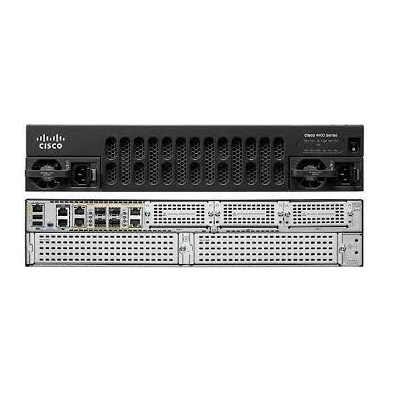Cisco routers are networking devices developed by Cisco Systems, a prominent networking technology company. Cisco routers play a crucial role in directing and managing data traffic within networks, ensuring efficient communication between devices and networks. Here are some key aspects of Cisco routers:
-
Network Routing: Cisco routers are designed to facilitate data packet forwarding between different networks, determining the optimal path for data to reach its destination.
-
Network Segmentation: Routers are used to segment networks into subnets, helping organizations manage traffic, security, and performance within their network infrastructure.
-
IP Addressing: Routers play a vital role in IP address assignment and management, ensuring that devices within a network are assigned unique IP addresses.
-
Interconnectivity: Routers enable the interconnection of various network types, such as LANs (Local Area Networks) and WANs (Wide Area Networks), facilitating communication across different geographical locations.
-
Data Filtering and Security: Routers can filter and block specific types of traffic based on defined rules, contributing to network security by preventing unauthorized access or malicious content.
-
Quality of Service (QoS): Cisco routers support QoS features that prioritize and manage network traffic, ensuring that critical applications receive the necessary bandwidth and performance.
-
Network Address Translation (NAT): Routers can perform NAT, allowing multiple devices within a private network to share a single public IP address for internet access.
-
Virtual Private Network (VPN): Cisco routers often include VPN capabilities, allowing secure communication and data transmission over public networks.
-
Routing Protocols: Routers use routing protocols to exchange routing information and determine the most efficient paths for data transmission.
-
Wireless Connectivity: Some Cisco routers combine router and wireless access point functionalities, providing both wired and wireless connectivity within a single device.
-
Network Monitoring and Management: Cisco routers offer management interfaces and tools for configuring, monitoring, and maintaining router settings.
-
Modular Design: Many Cisco routers are modular, allowing for the addition of interface cards or modules to customize the router's capabilities based on specific requirements.
-
Redundancy and Failover: High-end Cisco routers offer redundancy features and failover mechanisms to ensure network availability in case of hardware or connectivity failures.
-
Integration with Network Services: Cisco routers can integrate with various network services, such as firewalls, intrusion detection systems, and content filtering.
-
IPv6 Support: Cisco routers are designed to support IPv6, the latest version of the Internet Protocol, to accommodate the growing number of devices and addresses on the internet.
Cisco routers come in a variety of models tailored to different use cases and network sizes, ranging from small office/home office (SOHO) environments to large enterprise and service provider networks. They are known for their reliability, security features, and the ability to adapt to the evolving needs of modern networks.
















